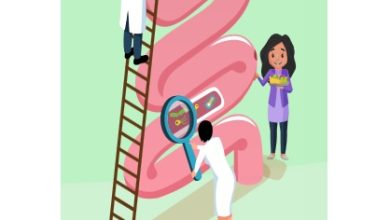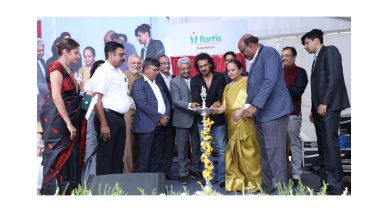Sagar Hospitals launches state-of-the-art Neurovascular lab

On the occasion of World Stroke Day, Bangalore-based multi-specialty hospital, Sagar Hospitals, has launched today a one-of-its-kind Neurovascular lab (neurosonology services) at their Jayanagar unit in Bangalore. Neurosonology is a simple, non-invasive and bedside ultrasound-based assessment of flow in neck and brain arteries. Stroke is due to a blockage in a blood vessel or a rupture of a blood vessel inside the brain, which is also called as ‘brain attack’. Sagar hospitals also announced the launch of ‘Stroke Clinic’, a dedicated outpatient centre for stroke prevention and follow-up.
The state-of-the-art facility will include a Neurosonology lab to assess real time flow in the arteries of the neck and also the brain. Apart from diagnosing the stroke mechanism, it helps in identifying those with higher risk of stroke by detecting micro-clots or micro-embolic signals and take preventive or corrective measures. Sagar hospitals is one of the very few centres in Karnataka to provide affordable stroke care and treatment options through its cutting-edge technology and years of clinical expertise.
While stroke occurs mainly in advanced age group beyond 60 years, events occurring at a younger age is not a new phenomenon anymore. Even childhood and newborn strokes are not uncommon anymore. The reasons for such strokes are not the same as those in the elderly. Here is where neurosonology (transcranial Doppler) helps identify conditions like Moya Moya disease in young where the problem is not a ‘clot’ but an abnormal artery that is getting blocked.
The idea of such a comprehensive centre is to create awareness and educate people about point of care stroke treatment and effective ways of preventing it.
The center was inaugurated by Dr CN Manjunath, HOD, Cardiology and Director, Sri Jayadeva Institute of Cardiology at Sagar Hospitals, Jayanagar.
Inaugurating the center, Dr CN Manjunath said, “There has to be increased awareness of brain attacks or strokes, just like heart attacks. Today, we are able to better manage stroke symptoms and sometimes, even reverse the symptom, if identified and treated in time. With the help of innovative technology like Neurosonology, we can study the pattern of blood flow in the brain and understand it is a simple non-invasive tool in detecting clots.”
Ms Ishiqa Multani, Executive Director, Sagar Group of Hospitals said, “Sagar hospitals and Sagar Brain & Spine Institute (Dept of Neurosciences) not only offers the most comprehensive stroke care, but affordable neuroscience treatment in the state of Karnataka. The public should be educated, which helps in early detection or prevent future risk of the disease. We are also happy to launch our Stroke Clinic that will provide point of care medical care to stroke patients.
Dr Amit Kulkarni, Lead Consultant Neurologist, Neurosonologist and Stroke specialist said, “Newer technology in the form of high-resolution duplex and Transcranial Doppler (TD) have now completely transformed stroke management. TCD is also referred to as the doctors’ stethoscope of the Brain. By this technique the blood supply to the brain can be obtained in real time, and can be continuously monitored. It can also identify micro-clots or micro-embolic signals which can predict stroke risk when present. This tool is useful for guiding revascularization and also helps prevent strokes.”
High resolution carotid duplex helps identify high risk cholesterol blockages in the neck which can lead to stroke if not treated in time. It guides the Neurologist about the method of clearing the blockage either by surgery (endarterectomy) or by intervention (stenting).
Apart from identifying causes of young strokes, mainly vasculopathies like Moya Moya disease, detecting narrowing of brain arteries, detection of micro-clots, TCD also helps in flow assessment when the brain circulation is put under stress (like a simple breath-holding test for 30 seconds) and whether brain has enough reserve to compensate for the narrowing or blockage when the patient is subjected to low blood pressures like in major surgeries. This helps prevent catastrophic strokes from happening when such a patient goes for bypass or any other major surgery and he/she can be revascularised in time.
Two stroke survivors were felicitated at the event, as they bravely fought against all odds and emerged victorious in the battle against stroke.




